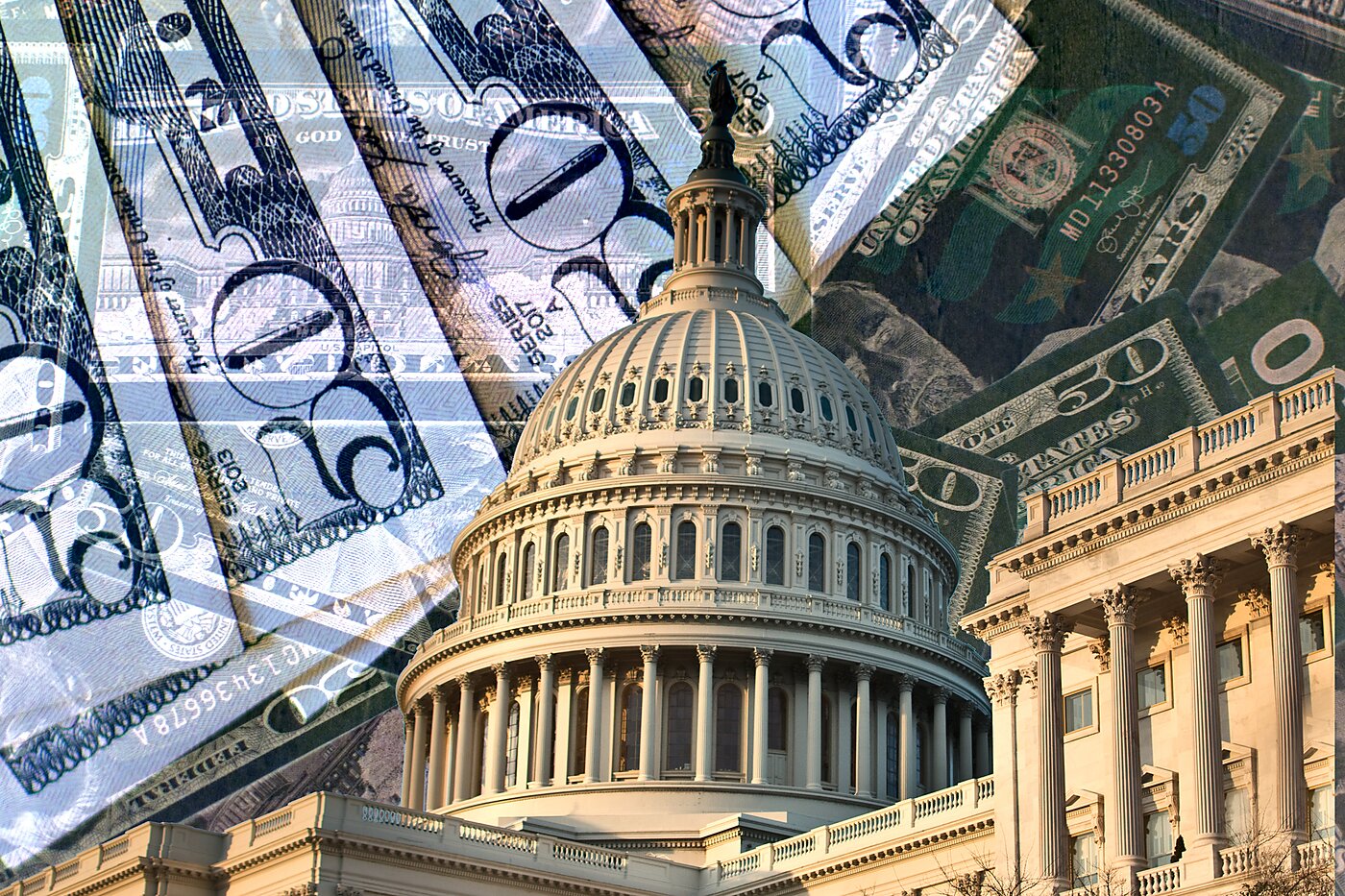Romina Boccia and Dominik Lett
Whoever thought that the May 2023 debt limit deal settled debates over topline government funding levels for fiscal year (FY) 2024 was clearly mistaken. Now four months into FY2024, Congress has reportedly struck a deal to determine how much the US federal government will spend on defense and non‐defense appropriations, which account for roughly one‐third of the federal budget that’s subject to annual debate.
In the big picture, House Speaker Mike Johnson (R‑LA) is finding himself between the same rock and a hard place that his predecessor did. House Republicans do not have the option of passing a funding deal without Democratic support in the Senate, necessitating negotiations that require a give‐and‐take approach that will leave much to be desired for both sides of the political aisle.
The January 2024 funding deal bakes in higher government spending levels, with modest restraints from capping the use of budget gimmicks and holding the line on new emergency spending. On the flip side, this deal continues business as usual, relying on budget gimmicks and emergency designations to pad topline spending, while falling short of cutting spending back to pre‐pandemic levels or holding the line on limiting spending to no more than fiscal year 2023’s levels.
What this tells us is that neither Democrats nor Republicans are ready to face the US government’s rapidly deteriorating fiscal situation. This is a deal to avoid a government shutdown during an election year, but not much else.
The Spending is in the Details
The January 2024 spending deal includes $886.3 billion in defense and $772.7 billion in nondefense spending (base nondefense is $703.7) for a $1.659 trillion total. The nondefense topline includes $69 billion in extra spending originally agreed to in a May debt limit side deal between former House Speaker McCarthy (R‑CA) and the White House. It offsets some of this additional spending with cuts to the IRS ($20.2 billion) and by rescinding unspent COVID-19 and other emergency funds ($6.1 billion).
The deal also continues disaster‐related emergency spending, sticking with the previous year’s level of $12.5 billion (rather than the $23 billion the Senate was asking for). The common CHIMPs (changes in mandatory programs) gimmick is included as well but capped at a lower amount than was the case in the May debt limit agreement ($15 billion, instead of $25 billion). Earmarks will also rear their ugly head yet again.
Does this Deal Establish a New Precedent for Fiscal Restraint?
The Johnson‐Shumer budget deal fails to return discretionary spending to pre‐pandemic levels, boosting spending by about $300 billion, before accounting for the roughly 20 percent inflation the US experienced since 2020. The deal also boosts topline spending above 2023 levels, before accounting for inflation. The deal falls short by these objective measures of fiscal restraint.
It reduces spending compared to the May debt limit deal when accounting for side deals and rejects new emergency spending designations, as requested by Senate Democrats (we wrote about these previously here). As such, it secures a small victory for fiscal restraint. That is, assuming it holds, without additional emergency supplemental spending and other final budget shenanigans once the ink is dry.
This deal still has a long way to go before being enacted. Still up for discussion are GOP border measures, Biden’s emergency supplemental request to support Ukraine, Israel, Taiwan, and more, as well as policy riders, and whether Congress will try to address the broader fiscal challenge by attaching a congressional commission bill to smooth final passage. Should they proceed with such a commission, it’s important that they give it real teeth so it stands a chance to succeed.



